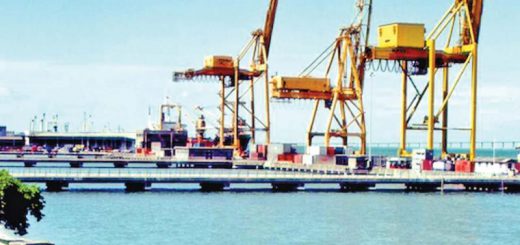Logistics App Development Complete Guide of 2024
In the rapidly evolving world of logistics, technology not only plays a pivotal role in optimising operations, enhancing efficiency, and delivering superior customer experiences but also drives innovation. Moreover, logistics app development has emerged as a game-changer, empowering businesses to streamline processes, manage resources effectively, and achieve real-time visibility across the supply chain. From managing shipments and tracking deliveries to optimizing routes and automating warehouse operations, logistics apps have revolutionized the way logistics companies operate. In this comprehensive guide, we will explore the A-Z of logistics app development, covering key aspects, benefits, challenges, and best practices.
Understanding Logistics App Development
Logistics app development involves designing and creating software applications that cater specifically to the needs of logistics companies. These apps are customized to address various logistical challenges and offer a wide range of functionalities, such as shipment tracking, route optimization, inventory management, and real-time reporting.
Benefits of Logistics Apps
Streamlined Operations: Logistics apps enable businesses to streamline their operations, reduce manual processes, and enhance overall efficiency.
Real-time Visibility: With logistics apps, companies gain real-time visibility into their supply chain, allowing for better decision-making and proactive issue resolution.
Enhanced Customer Experience: Logistics apps provide customers with live updates on their shipments, boosting transparency and customer satisfaction.
Cost Savings: By optimizing routes and resource allocation, logistics apps help businesses save on fuel, time, and other operational costs.
Key Features of Logistics Apps
Shipment Tracking: Real-time tracking of shipments not only allows businesses and customers to monitor the movement and status of goods but also enhances transparency and efficiency in the supply chain.
Route Optimization: Logistics apps can optimize routes to minimize travel time, thereby reducing fuel consumption and improving delivery efficiency.
Inventory Management: These apps enable businesses to track inventory levels, manage stock, and automate inventory-related tasks.
Warehouse Management: Logistics apps facilitate efficient warehouse operations, including inventory tracking, order fulfilment, and packing.
Analytics and Reporting: Advanced logistics apps offer analytics and reporting features, providing valuable insights to make data-driven decisions.
Types of Logistics Apps
Fleet Management Apps: These apps focus on fleet management of vehicles, tracking their locations, and optimizing routes.
Last-Mile Delivery Apps: Last-mile delivery apps cater to the final leg of the delivery process, ensuring swift and accurate deliveries to customers’ doorsteps.
Warehouse Management Apps: These apps streamline warehouse operations, including inventory management, order processing, and picking.
Freight Forwarding Apps: Freight forwarding apps facilitate the movement of goods from one location to another, managing logistics, customs, and documentation.
Challenges in Logistics App Development
Logistics apps, which handle sensitive data, make data security a top concern. Developers must implement robust security measures to protect against data breaches. Furthermore, integrating logistics apps with existing enterprise systems can be challenging. In addition, compatibility and seamless data transfer are essential considerations. As businesses grow, their logistics needs evolve. Developers must build apps that can scale to accommodate increasing demands. Logistics apps must be user-friendly and intuitive for both businesses and customers to use effectively.
Best Practices for Logistics App Development
Understanding Business Needs: Developers must thoroughly understand the specific needs and challenges of the logistics business to build a tailored app. Additionally, this understanding ensures that the resulting app aligns perfectly with the unique requirements of the industry.
Agile Development: Furthermore, adopting an agile development approach allows for continuous improvements and quick adaptations to changing requirements.
Real-time Updates: Providing real-time updates is crucial to keep customers informed and to ensure the smooth flow of operations.
Usability Testing: Conducting usability testing helps identify and rectify any usability issues before launching the app.
Technologies for Logistics App Development
GPS and Location Services: GPS technology enables real-time tracking of vehicles and shipments.
IoT (Internet of Things): IoT devices can be integrated into logistics apps to monitor and manage assets in real time.
Cloud Computing: Cloud-based logistics apps offer scalability, cost-efficiency, and easy accessibility.
AI and Machine Learning: AI algorithms can optimize routes, predict delivery times, and automate certain tasks.
Also Read:- How to Choose the Right Driver for Orders on Demand Delivery
Conclusion
Moreover, logistics app development is transforming the logistics industry, offering businesses the tools to optimize operations, enhance efficiency, and deliver superior customer experiences. From shipment tracking and route optimization to inventory management and real-time reporting, logistics apps provide a comprehensive solution to the complexities of the supply chain. Moreover, as technology continues to evolve, logistics app development will play a crucial role in shaping the future of logistics, enabling businesses to stay competitive and meet the ever-changing demands of the market. By embracing the A-Z of logistics app development, logistics companies can further embrace innovation, unlock new opportunities, and navigate the road to success in the dynamic world of logistics.




Recent Comments